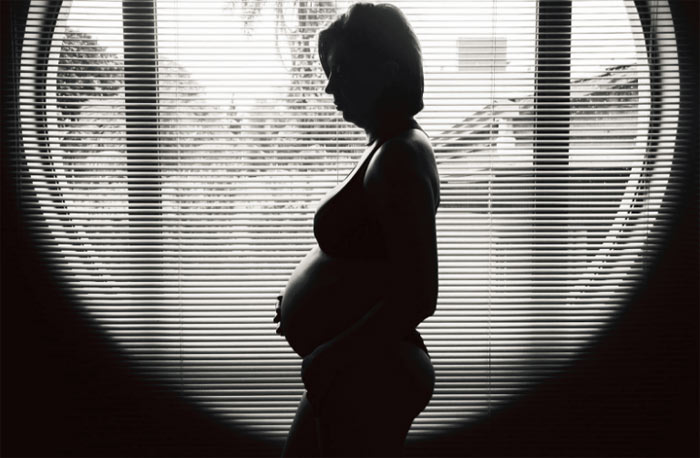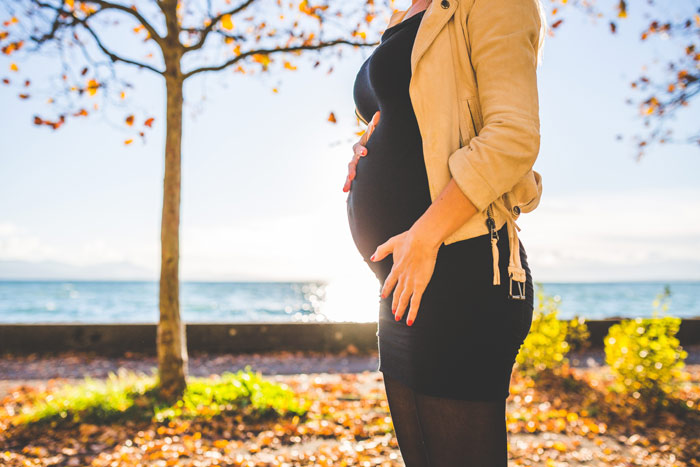Giving Birth After 40: Most Important Things to Consider
The age limit for childbirth is pushed further away, and a natural question arises – is there really a medical basis for age recommendations for childbirth, or are all the obstacles in our minds?
What determines the possibility of late pregnancy
Each of us has our own age of the reproductive system, which is determined genetically and also depends on the general state of health and lifestyle. This means that at 40-45 years old, two different women look great and look after their health will have completely different reproductive health statuses.
We are talking, first of all, about the so-called ovarian reserve – the number of eggs in the ovaries capable of fertilization. Up to 25% of women suffer from an early depletion of the ovarian reserve and, as a result, infertility and the onset of premature menopause.
After the age of 30, a woman’s natural ability to conceive gradually decreases, and after 43 years, most women lose the ability to conceive. However, there are women who, on the contrary, are distinguished by late menopause. For them, 40-43 years is still a period of fertility heyday, and they easily get pregnant.
The main risk area: osteochondrosis of the spine. Rarely does anyone approach the age of 40 with an absolutely healthy back? Another issue is blood pressure problems. The third one is thyroid dysfunction and metabolic disorders. Therefore, the widespread opinion that late childbirth completely rejuvenates the body and initiates regeneration and renewal processes is fundamentally wrong.
What obstacles can you meet?
Unfortunately, it is impossible to outsmart nature in one thing: no matter how good we look, the body still undergoes oxidation processes, withering processes, and the development of chronic diseases associated with age-related changes in the body. This is especially true for women living in large metropolitan areas experiencing constant oxidative stress.
It is also worth considering the developing body of the baby, which will take all the resources it needs. If the mother, for some reason, does not have these resources due to age, the baby will develop with a delay. First of all, here we are talking about hormonal dysfunctions.
Late pregnancy, most likely, will mercilessly expose all those weaknesses and hidden sores that have accumulated with age and which we might not even have suspected.
What else is important to think about
In addition to carrying a baby and giving birth, you should think in advance about the first year of the baby’s life. For the category of women 40+, this particular period can conceal the greatest difficulties and require special attention.
It is no secret that the first years of raising a baby have a depressing effect on women’s health, and after all, recovery processes slow down with age. Constant carrying heavyweights, sleepless nights, and stress will not be tolerated the same way at 20-30 years and at 40-45.
A 40+ woman who wants to remain vigorous and blooming, and most importantly a positive mother for her children, must get enough sleep, eat a balanced diet, and take care of her back. Perhaps for the sake of this, we will have to reconsider what we are used to in our first pregnancies: we should take care of ourselves, actively use outside help, learn to put our health on a par with the priorities that the baby sets.
If you do not think it over in advance, expectations from late parenting can fail and lead to chronic health problems and, as a result, to a lack of attention paid to the baby. Everything should be for joy and for the benefit of your health. Therefore, if we think about late childbirth, we should first predict the needed strength and resources.
A quick memo: What you need to know about late pregnancy and childbirth after 40
It is not age itself that is important, but a woman’s reproductive health, which can be assessed by a gynecologist. Modern technologies allow us to preserve healthy and high-quality eggs for possible late pregnancy.
With age, chronic diseases accumulate, which can adversely affect gestation. It is necessary to stabilize the state of problem body systems before pregnancy. Pregnancy should take place under the close supervision of an endocrinologist.
Do not neglect pregnancy screenings. Also consider doing a non-invasive test (examining the embryo’s DNA from the mother’s blood, identifying the five most common genetic syndromes).
Consulting a psychologist will help you understand yourself and your deepest desires. Indeed, sometimes the desire to have a child after 40 is an expression of completely different desires – for example, the fear of aging.
The main thing is a positive mood, plus a balanced, caring attitude to your health.



